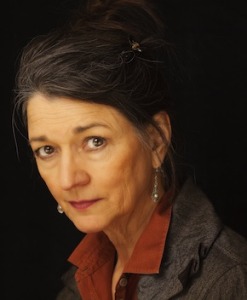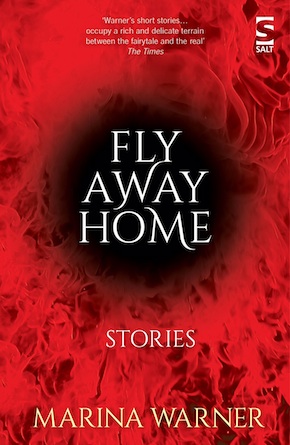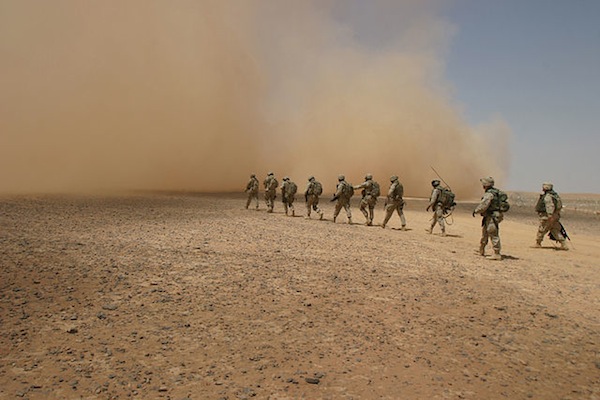Sing for me
by Marina WarnerIn those days the rumour started that there would be an inquiry. Full and frank disclosure, the government kept hinting. A tribunal of independent adjudicators and observers. Independent observers. They’d look into the events thoroughly. And into the sequence of events that led to them, into the decisions and actions that led to those particular events on that day.
The correct name for what happened was ‘Operation Light of Day’. That was what the history books will call it. But my husband, the Captain Procurator, always referred to it as ‘the manoeuvres’. I used to say ‘the mistake’ (but I avoided talking about it, then, and I still don’t like to dwell on it now). Maia, she called those events ‘the outrage’.
I so wished she wouldn’t.
An inquiry had been going on all along, of course – beneath the surface. Not yet officially. But questions were the stuff we breathed. Except that we didn’t breathe.
At home, Maia might as well not have been there. She was always in her room, on her machine, writing, writing. When she did talk to me, she’d argue, “We have to find out. So that there won’t be a next time. So that it stops. Any progress towards peace has to start by finding out who did it, and what exactly they did. How many people? How many died?”
But my husband, he wouldn’t see it that way. He’d ruminate. “Robust, full, frank disclosure? Transparency? Yes, of course.” But then he’d start qualifying this and qualifying that, and Maia would get angry with her father till he’d say to her, “That’s what we’re told. That self-examination’s the gold standard of democracy. That is what the government wants, and we agree. I agree. Every nation on this earth should be accountable and transparent. Absolutely.
“But there’s a limit to all this… fessing up. Some things should be known, but some things not. Some things should be said, but some things – I told them, no way will I give the inquiry the go-ahead here.”
***
For the people who lived there, in that place where the mistake happened, the events are known by the name of the place that was once their home: a somewhere of little importance till then, a place nobody in their right mind would have wanted to go, let alone live. Until the mistake put it on the map, you could say, and the world’s media descended on it.
By then there wasn’t much of it left at all. Though now there is… a bit more. It’s being rebuilt by our forces, with help from NGOs, of course.
History matters, but who the historians are matters more. I always ask, who’s telling this story? Whose voice am I hearing? Do I want to listen to other people’s stories?”
I say ‘we’… but I’m speaking for myself. My husband, the Captain Procurator, he didn’t agree. He had responsibilities for so many things. And then he had decisions to make about the inquiry too. Whether it was to come here. And if it did, who’d be allowed to attend. How much funding it’d be allotted. And who’d be called to give evidence…
Would he be called? Or would he be allowed only to preside? To stay in charge?
When they took place – the events in that small place – he was much younger. He was acting under orders from men – and women – higher in rank than him.
It was a long time ago.
He would say to us, “It depends who’s doing the remembering and of what, doesn’t it? History matters, but who the historians are matters more. I always ask, who’s telling this story? Whose voice am I hearing? Do I want to listen to other people’s stories? To throw good money after their stories? I know what they say about the manoeuvres. I know what they’ll want to say. What about their constant low-grade shelling, their endless attacks on us? Haven’t we suffered ten times, a hundred times more?
“For as long if not longer?
“Besides, many other things have happened since. Terrible things. We were at war, for God’s sake. We were making the peace.”
***
Our daughter, Maia, has always been a good student – straight As since she was first at school – but she decided very young that she wanted to be a musician. She used to play classical music, piano pieces. Lovely stuff – and difficult. She could always sing, too. And when she was a little girl, we used to hear her sing. She’d look blissful, singing, she loved it. You could see the music pick her up on its waves. It made her fly away inside, she said.
But then she joined a band, and they gadded about, doing gigs at parties. They were always staying out late. She’d wince and chew her hair when I used to say she’d go deaf with the loudness, and that would be the end of a musical career. But she’d almost spit at me, and I didn’t know what to say to her when she’d got that mood on her. She was fourteen years old and she already had worry lines between her brows. If I tried to smooth them with my fingers she’d snap at me, that she didn’t care. “You put them there,” she said. “Ugly suits me,” she said. “Ugly suits you.”
She used to make me cry.
That was when she took to calling the events the outrage. Just like they did, the ones who are bombing us in the streets, dropping devices in our shopping baskets and under our bus seats.
My husband, the Captain Procurator, he was getting angry, too. He’d rail against the government: the peace process was turning every one of our leaders into… ‘therapists…’ We’re all to line up and lie down, while they bang on about ‘truth recovery’ and ‘forgetting leads to festering’ and ‘remembering is healing’. Bahh. How we’ve got to become a ‘holistic society’. Naww.
“Some things should be remembered,” he’d say. “But the rest. Just causes trouble. Reopening wounds. Salting them.”
At first Maia pleaded with him. She’d say, “We have to live differently.”
***
But the danger signs really began for me when she was about to turn fifteen. It was two years ago, and she’d promised to be home and we’d celebrate, a family together. I asked her to sing. But when it came to the moment, she wouldn’t, she ran out of the room, screaming at us. How she hated us, how we filled the world with slime.
I’ve tried to unpick what happened to her: you know, like an Indian scout, putting my ear to the railway tracks to catch the distant vibrations.
I suppose the first faint tremors I caught began when she was smaller, and she began to ask questions if we were together, watching the news. Her father always answered her: “So who’s the bright one in this family?” he’d say. He was so proud of her. “You. And you’re right to ask about what is happening. I’ll explain. Explain everything. Killing is always regrettable but it’s not always wrong. God says so: it is in the Scriptures that it’s right to exterminate enemies who are bent on exterminating you. It’s even more justified when that enemy is bent on destroying you by any means, however ruthless. They have shown us on every occasion that they’ll stop at nothing. Not even at the death of innocent victims. Innocents like you. You’re in danger, my darling girl, you and all your little friends and their friends.
“I’ve always done everything I can, God knows, to protect you and I shall always do so.”
In those days she was scared for him. When he was away on a tour of duty she’d be looking at the news, chewing her hair. She didn’t want him to be there, wherever it was, doing whatever he did. He wasn’t in the fighting any more but though she knew that, she was still frightened her daddy would die. Not, then, that he’d be the one who…
Sometimes, when he was back from a tour, we’d be watching the news together, and she’d be frowning and scowling and he’d try to cheer her up and coax her to give him a little smile, a nice smile for her Daddy. But then, she started not coming down when we were going to have dinner. She wasn’t hungry. I’d go and knock at her bedroom door. She’d started making us knock at her door. And she’d call back without moving, “I need to be private.” I’d hear the sound of a click, and then that tootle, you know, when the laptop closes down. Sometimes it was her phone she’d snap shut. I’d go down again and her father would start railing at me, as if it was my fault, saying it was dinner time and this family had its meals together like a proper family, at seven o’clock punctually, and how he wanted her to bring friends home, they were all welcome.
Then, one day when she was at school, I went into her room. I am her mother and I need to watch out for her, so I told myself that there was no reason to feel badly about snooping on her, with all that coming and going and late nights… I had every cause for concern.
There it was, on her screen, some kind of blog she was writing under a strange name. “Bring friends home! To meet my father? He used to show me his campaign medals; he used to stand to attention and march up and down while I stood up in my nappies and clapped him and gurgled. He’s shown me that home video, over and over. Sometimes he’d take his gun out of the locked cupboard in his study and hand it to me to feel its weight – and its cold. Or he’d get his sidearm out of its holster and tip out the bullets and then spin the chamber and give it to me to hold while it was spinning – and it was warm from his hands and you could see how he loved it, loved his gun.”
Oh God, when I saw what she was up to. The shaking on the tracks – I could read it now.
I was really frightened. What he would do if he knew. That she could be the one who gets hurt. I was trembling. But something in me was excited, too.”
We should’ve seen it coming. No, that’s not right. I should have seen it coming. I did. But I didn’t admit it to myself. I couldn’t, not then. It was unimaginable. Though her actions were by no means isolated. She was part of a trend. A movement, they called it. They wanted openness, truth, they said. She was writing to her friends, “There’ve been inquiries in other places, they make it possible to move on. We know lots now. We know what they don’t tell us… They do things and they don’t think about what they do. What it means for us who have to live with the outrage.
“Make wars history!”
The threads, long, long threads with little postage-stamp faces beside them. Of her friends. Dozens of them. Some I did know. Her friends in the band. And they were talking to them too. Exchanging bulletins about what happened and what is happening. They were organising.
“They’ve made us complicit,” she wrote. “And we’re not the ones whose homes have been ransacked and wrecked and demolished, the innocent who’ve been shot and killed. We’re still alive. I live here, in this fine house, the house of the Captain Procurator, and I have a room all to myself, and all the food I need and water. Water whenever I want it. Hot and cold.”
I was really frightened. What he would do if he knew. That she could be the one who gets hurt. I was trembling. But something in me was excited, too.
It was a few days later, and we were watching the news – or rather, Maia was watching, with me. We were quiet, together, even happy. The Captain Procurator wasn’t home – he was on a mission… And the newsreader began announcing that new evidence had been made available about Operation Light of Day – the manoeuvres, the mistake. On April 12 that terrible year thirteen years ago.
I was really frightened. What he would do if he knew. That she could be the one who gets hurt.
And we saw him. He was – facing a man who was waving his hands in the air. I wasn’t sure. No, that’s not it. I wanted not to be sure. And she… well, when she was a little girl, she used to squeal with the thrill of it, when she glimpsed her father in the gunship, sitting in the tail with his machine gun between his knees, or when he was talking to camera after an operation. Now, though, I could see she knew that even though he was so much younger it was still her father in the shot, he was the man with the gun, and he’s holding it in the face of an old man, who’s waving both his hands in the air and his hands are empty. The Captain – my husband – is younger and the film’s jumpy and a bit fuzzy. But it’s him.
He came back and he said to her, “It’ll be my birthday soon. I’m going to be forty-five years old. Forty-five. An old man!
“I want you to do something for me.” His voice was soft and kind. “The day you were born, I was away. I heard the news on the phone in the camp. I remember I cried. I cried, I did.
“Go on, cheer up your old father on his birthday. Sing something for me! You used to sing. You sing so nicely when you want to. Sing for me. An old song, a song I remember from when I was your age. That way I’ll feel young again.”
She was smiling, she was playing to his tune, and for a moment, I was tranquil, we were going to be a family again.
She said, “And if I sing, Father, will you give me something I really want?”
“Of course,” he said. “Anything. I swear, by everything that’s holy.” He was laughing, and he would have given her the moon and the stars. But he offered her a car, an iPod, you name it, but she was shaking her head, still smiling. “No, nothing like that,” she said. “I want something instead that means something – to you, to us all.”
“That’s my girl!”
He was beaming.
I could feel her fierceness, like a rip tide rising, and he was in the water and he didn’t know it.
I felt a hollow under my ribs, and a bird caged there flew up and out – and I was holding on to her arm, my daughter’s arm, and walking with her towards him, and I didn’t let go but squeezed her and felt how thin her whole frame is – my daughter’s body, so thin – when she went up to him and she put her hand in his and told him he had to testify.
***
When Maia comes to see me now she gives me courage. She says, “If you cut yourself out of the process of inquiring into what happened and what is still happening, if you refuse to know what we did and how we did it, tomorrow will be an alien place and this country where we live will become a desert.”
I warm myself at her fire.
“Daddy did right to confess, he knows he did. Even the judge at the tribunal agreed that he was trying to be a good man and do his duty.”
She tells me, “We’re all connected. There is no Them. ‘Because others are, I am; I am because you are.’” She’s quoting, she tells me, from a poet, a poet far away. “We couldn’t go on living like that, hardly daring to draw breath in case we let something slip.”
When she speaks like that, when my daughter speaks, it is as if she’s inside me, voicing my trapped soul. I feel it flutter like a bird trying out its wings. That a child should give breath to the parent, isn’t that against nature?
From the collection Fly Away Home.
 Marina Warner is a novelist, story writer, historian and mythographer whose work examines links between feminism, human nature and the supernatural. She is currently Professor of English and Creative Writing at Birkbeck, University of London. Her new story collection Fly Away Home is published by Salt in paperback and eBook. Read more.
Marina Warner is a novelist, story writer, historian and mythographer whose work examines links between feminism, human nature and the supernatural. She is currently Professor of English and Creative Writing at Birkbeck, University of London. Her new story collection Fly Away Home is published by Salt in paperback and eBook. Read more.
marinawarner.com
Author portrait © Edward Park



